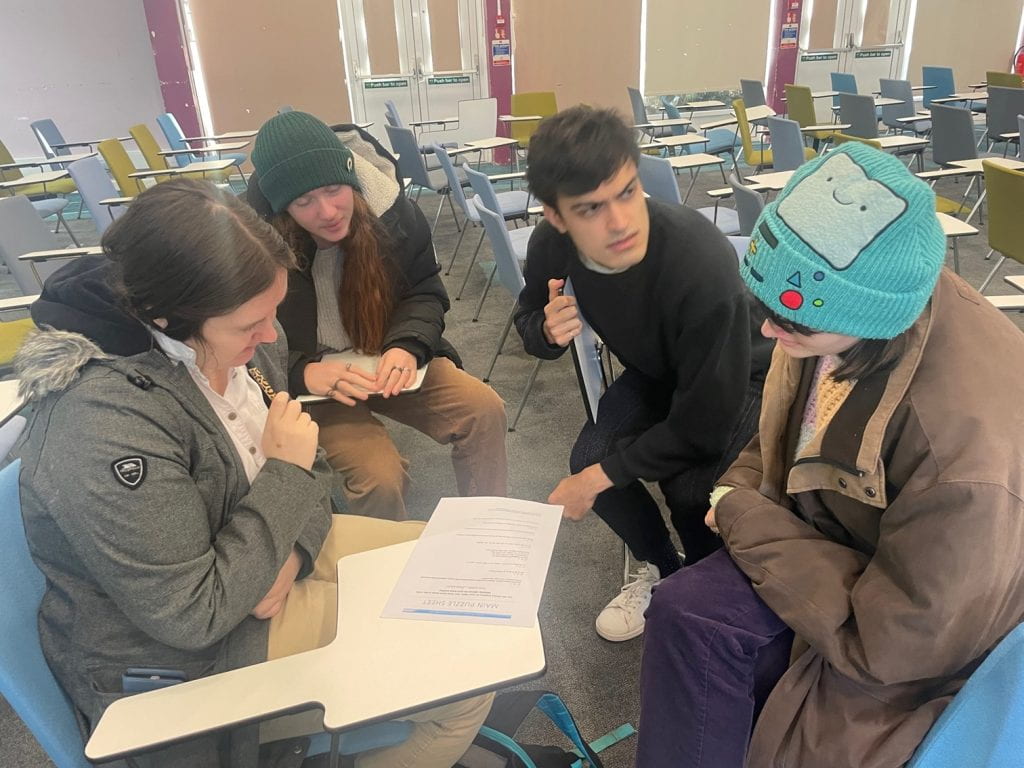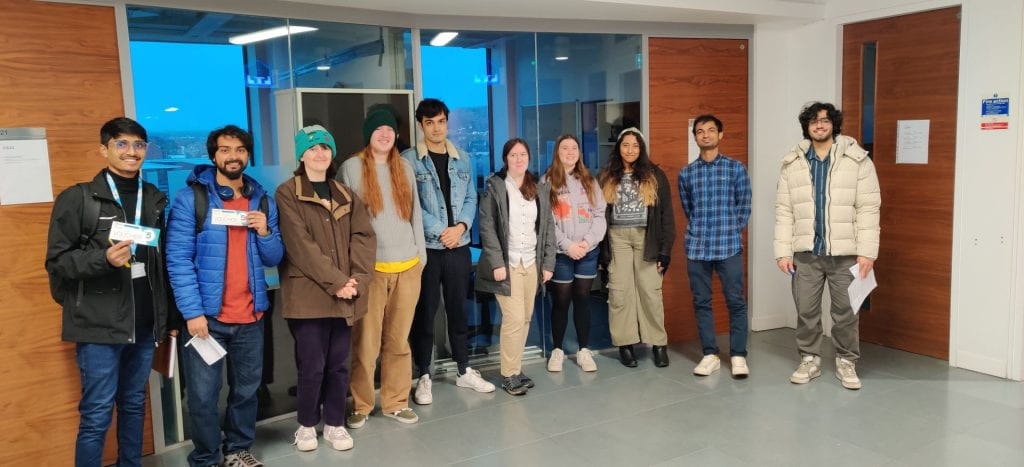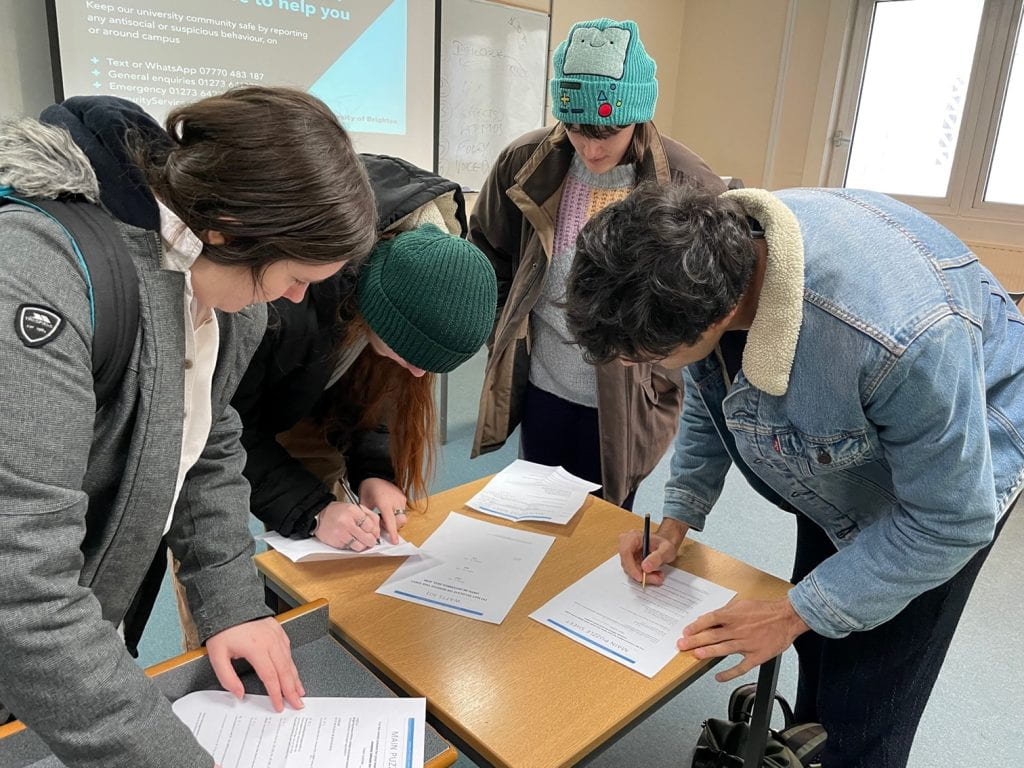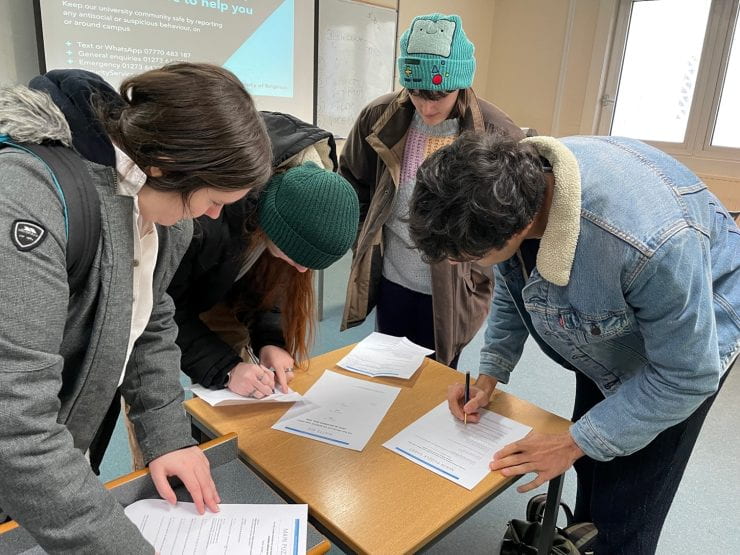All students from our school were invited to take part in our first Puzzle Hunt this month. Three teams took on the challenge with the winning team picking up SU vouchers as prizes for solving the puzzles in the fastest time.
All teams did brilliantly. Our super sleuths solved a series of puzzles based on pattern matching and work/number associations which took them on a hunt all-round the Moulsecoomb campus. Each puzzle led the different teams to a different room on campus where they found the next clue.
Dr Almas Baimagambetov, principal lecturer and subject lead for computing and maths, organised the event and devised all the challenges said: “The main challenge comes from the fact that clues to solve puzzles are located in different rooms on campus, so before some puzzles can be solved teams will need to visit certain locations. While the puzzles were the same for all teams, the puzzle sequences and most of the clues are unique to each team, so they can’t simply follow each other.”
The Puzzle Hunt was open to the whole school so no specific subject knowledge was needed for this one. Keep your eyes peeled for other, computing-based events Dr Baimagambetov is organising. See below to find out more.








Codefest
Codefest is an example of a gamified work-based learning method that focuses on authentic assessment and is supported by industry experts. It is delivered as a software development event aimed at helping students to progress and use the latest technologies in the field, as well as promoting teamwork and peer learning through team-based challenges. The team that solves the most challenges wins the event and wins a prize. This is a great opportunity for students to experience the typical day-to-day activities that happen in the industry on a daily basis, as well as to create a strong network of developers.
Game Jam
Game Jam is a similar event focused on students on game development courses. Students form teams and assign themselves roles that mimic the ones used in industry, such as gameplay programmer, visual artist, audio engineer and others.
At the event, each team is given the same keywords that will form an idea for a game and each team develops their own visions of these games. As part of this process, students learn how to manage their own work, as well as how to manage the overall project, as teamwork is key to completing the development within the allocated time.

Published by